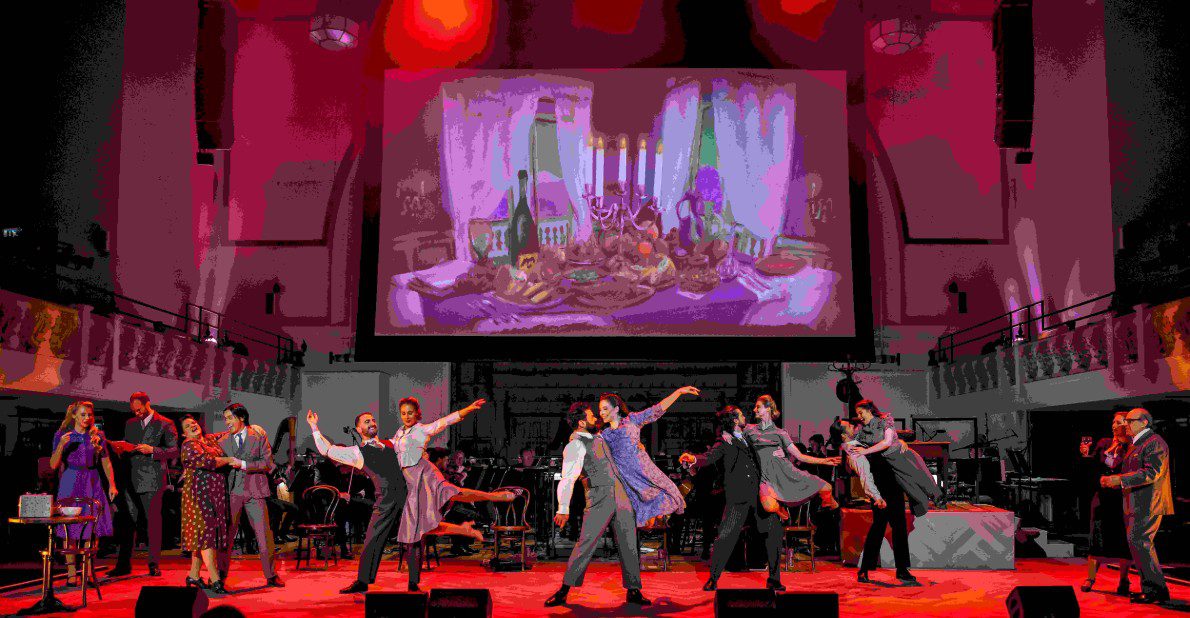My first surprise was that this is not the usual musical theatre I am used to, but more of an opera with thirty arias. The estimable David Suchet reads the narrative which essentially glue the scenes together and move along the plot. However, I doubt the audience can understand exactly what is going on unless they read the synopsis beforehand.
Set as a story-within-a-story in World War II, the plot follows an Italian journalist, Mimma on her journey from Turin, to London in the Blitz, and on to New York in 1952. After Mimma has been working for the Italian Resistance, for her own safety her family members send her to stay with her uncle who runs Lorenzo’s bar in London’s Soho. Here, she meets jazz singer, Sarah Parker, and their friendship forms the theme of the musical. The plot is complicated by boyfriends, family members and interfering police, fallings out, accusations of fascism, spying, stolen paintings and murders.
The production has a lot of heart but much of the drama derives from narrated political events rather than being character driven. A bundle of exposition is added towards the end of Act 3 concerning Nazi atrocities and smuggling art treasures which does not resolve or even contribute to plot lines from the previous two hours.
Celinda Schoenmaker’s performance as Mimma is one of the gems of the evening ably matched by Louise Dearman as the nightclub singer. While all the singers are top-notch, Ashley Riches playing Aldo Marini, Mimma’s brother, stands out. This production is worth seeing if only for him, [SPOILER ALERT] not least in a truly operatic and heart-rending song, Aldo’s Lament, before his execution in a fascist jail. The other person who caught my eye was one of the ensemble (although they are all good), Charlotte Marsh, whose delightful effervescent personality comes across well. Steve Serlin is excellent as Jacob Katz, a Jewish wheeler-dealer in London, who gives much needed light relief. The BBC Orchestra was in full gear making the audiences heart swell as we went into the overture, but the crescendos of the music never really reached a pitch to make me weep.
Advertised as a scaled-down production, it was consequently hampered somewhat by a small front stage with no scenery, the orchestra filling up most of the back space, leaving only room for simple choreography, but it was well done and gave us a flavour of the time. Rather than scenery, a projector displayed images and paintings as a backdrop, giving us some idea as to where the characters were.
Mimma comes out of a collaboration between a couple of Australian creatives – composer and producer Ron Siemiginowski and librettist Giles Watson. It is a wonderful artistic endeavour, but as I was watching, it seemed to me that it was music and songs set to a story rather than the other way around. Reading the programme, I saw that Siemiginowski had indeed already written much of the music and melodies from which Giles Watson then found the characters and wrote the plot. He has certainly done his research on events. I come from Lancashire and had no idea that we held enemy aliens in POW camps in cotton mills during World War Two.

